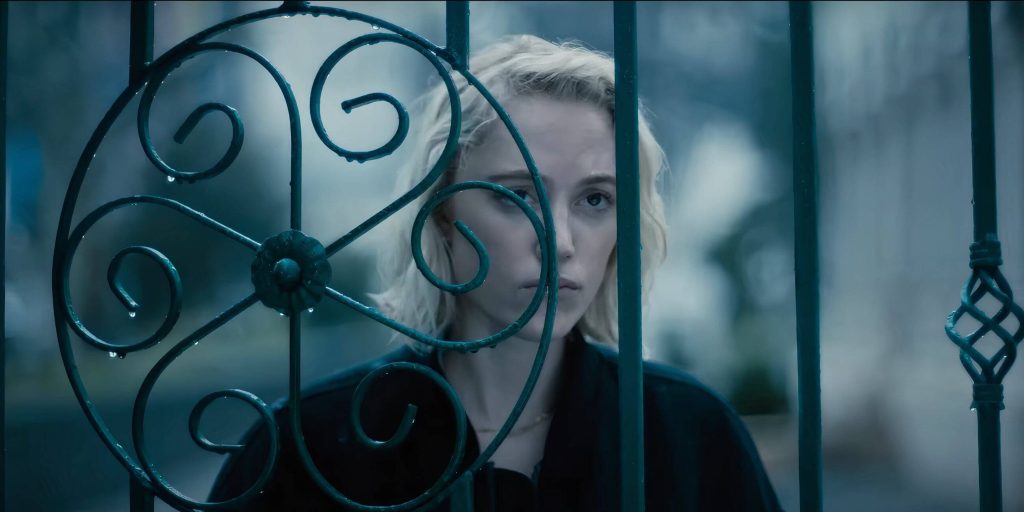World News
Unraveling the Climax of ‘Watcher’: A Study of Paranoia and Perception
In the 2022 psychological thriller “Watcher,” director Chloe Okuno crafts a narrative that delves deep into themes of isolation, paranoia, and the unsettling feeling of being observed. Set against the backdrop of Bucharest, the film follows Julia, portrayed by Maika Monroe, as she navigates a foreign city while sensing an ominous presence watching her every move. The film’s climax not only resolves the central mystery but also offers a commentary on societal tendencies to dismiss women’s fears.
The Unfolding Suspicion
Upon relocating to Bucharest with her husband Francis, Julia becomes increasingly aware of a neighbor, Daniel (Burn Gorman), who seems to be constantly watching her from his apartment window. Her unease intensifies with news of a local serial killer, dubbed “The Spider,” who targets women in the area. Despite her growing fears, Francis and the authorities dismiss her concerns, attributing them to paranoia and cultural adjustment challenges.

A Deadly Confrontation
The tension reaches its peak when Julia, after a series of distressing encounters, discovers the lifeless, headless body of her friend Irina in Daniel’s apartment. This horrifying revelation confirms her suspicions about Daniel being “The Spider.” In a harrowing sequence, Daniel attacks Julia, attempting to silence her as he did his previous victims. However, Julia manages to feign death, catching Daniel off guard, and ultimately kills him in self-defense.
Themes of Dismissal and Validation
The film’s conclusion serves as a poignant critique of how women’s fears are often invalidated. Julia’s experiences highlight the dangers of dismissing concerns as mere paranoia. Director Chloe Okuno emphasizes this societal issue, shedding light on the internal and external struggles women face when their genuine fears are not taken seriously.

A Reflection on Perception
“Watcher” challenges viewers to consider the fine line between vigilance and paranoia. Julia’s journey underscores the importance of trusting one’s instincts and the potential consequences of societal gaslighting. The film invites audiences to reflect on how perceptions can be manipulated and the critical need to listen and validate concerns, especially those voiced by women.
Conclusion
In “Watcher,” the climactic revelation not only resolves the narrative tension but also serves as a broader commentary on societal attitudes toward women’s experiences of fear and threat. By validating Julia’s suspicions in the end, the film underscores the importance of believing and supporting individuals who express genuine concerns, challenging the audience to reassess their perceptions and biases.
From dragontrendtees


